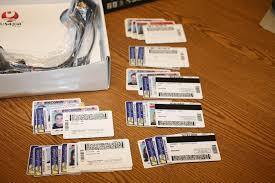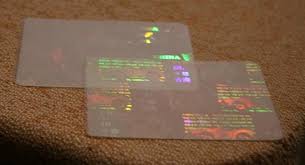Online Fake ID Market
Introduction: The Rise of the Digital Counterfeit Industry
In the digital age, where information flows seamlessly and anonymity is a prized possession, it’s no surprise that the demand for fake IDs has found a thriving market online. Fake IDs have traditionally been associated with underage drinking or illegal activities. However, as digitalization continues to shape various aspects of our lives, the online fake ID market has expanded its reach to include a wider range of users with diverse needs—ranging from those seeking privacy to those engaging in more illicit activities.
In this article, we will dive into the world of online fake IDs, examining the factors driving their demand, the mechanics of their production and sale, and the associated risks that individuals and society must consider.
1. The Mechanisms of the Online Fake ID Market
The online fake ID market operates much like any other black market, leveraging the anonymity of the internet and sophisticated technologies to produce, sell, and distribute fake identification documents. Here, we will explore how fake IDs are created, the platforms that facilitate these exchanges, and the technologies used to circumvent detection.
1.1 How Are Fake IDs Made?
Creating a fake ID is no longer limited to traditional methods involving manual craftsmanship. Modern fake IDs are produced using advanced software tools and equipment, including:
- Photo Editing Software: To manipulate personal details, images, and security features.
- High-Quality Printers: Capable of reproducing the texture and appearance of real IDs.
- Hologram Printing: An essential feature to replicate the visual security measures present in most government-issued IDs.
Fake ID producers often use sophisticated techniques to mimic not only the appearance of official IDs but also their security features. These IDs can include holograms, barcodes, and QR codes, among others, designed to deceive identity verification systems.
1.2 Platforms and Marketplaces for Fake IDs
The sale of fake IDs is primarily conducted via underground forums, encrypted websites, and peer-to-peer platforms. On these sites, sellers promote their services, often advertising their ability to replicate government-issued IDs from various regions, including the United States, the UK, Canada, and Europe. Many of these sites are hidden on the dark web, making them harder to trace and monitor.
However, the rise of social media platforms, encrypted messaging apps, and even marketplaces like Telegram has made the distribution of fake IDs more accessible than ever before.
2. Factors Driving the Demand for Fake IDs
The demand for fake IDs can be traced to several key factors that influence individuals to seek alternative forms of identification, often in violation of the law. Below are the primary drivers of this demand:
2.1 Underage Drinking and Age Restrictions
One of the most common reasons people seek fake IDs is to bypass age restrictions on alcohol and tobacco purchases. In many countries, the legal drinking age is 18 or 21, and young adults often turn to fake IDs to gain access to age-restricted venues or purchases.
2.2 Privacy Concerns
As individuals become more aware of data privacy and security concerns, some people use fake IDs to protect their personal information or maintain anonymity online. This has led to a rise in demand for fake IDs among people who are concerned about identity theft or surveillance.
2.3 Financial Gain and Illegal Activities
In some cases, individuals use fake IDs to conduct fraudulent activities, such as opening bank accounts, applying for loans, or engaging in other forms of identity theft. The anonymity provided by a fake ID allows individuals to engage in criminal activities with less risk of getting caught.
2.4 Convenience and Access to Services
In certain cases, individuals may resort to fake IDs simply to access services or benefits they would not otherwise be able to use due to age or other restrictions. This can range from gaining entry to clubs, bars, or casinos, to enrolling in age-limited online services or discounts.
3. The Technology Behind Fake IDs: Advancements and Challenges
The development of fake IDs has evolved in line with technological advancements. In this section, we’ll discuss how technology has made it easier to produce high-quality fake IDs and the increasing challenges faced by authorities to prevent their use.
3.1 The Role of AI and Image Recognition
Artificial intelligence (AI) and machine learning (ML) have played a pivotal role in improving the quality and sophistication of fake IDs. With AI-driven tools, criminals can replicate government-issued IDs with remarkable accuracy, even creating near-perfect digital copies of holograms and watermarks.
3.2 Enhanced Detection Systems
On the flip side, the rise of digital counterfeits has prompted governments and businesses to invest in enhanced detection systems. These include biometric scanners, enhanced document authentication software, and advanced image recognition technologies that can quickly identify discrepancies in fake IDs.
Yet, the gap between counterfeiting technology and detection systems continues to widen, making the work of authorities increasingly challenging.
4. Market Analysis: Growth, Trends, and Global Scope
The online fake ID market is not a niche industry; it’s a growing, international problem that impacts various sectors, including retail, entertainment, and security. In this section, we’ll take a closer look at the market’s scope, trends, and geographical reach.
4.1 The Global Reach of Fake ID Markets
The online fake ID market is truly global in nature, with counterfeit IDs being produced and sold across different regions. North America and Europe remain key markets, but the demand is also significant in regions like Asia and Latin America, where age restrictions and access to certain services drive consumers to seek out fake identification.
4.2 Market Size and Growth Forecast
According to estimates, the global counterfeit identification market is valued at billions of dollars, and this number is expected to grow as technology advances and demand increases. Factors such as the rise in underage drinking, the increasing concern over privacy, and the growing sophistication of fake ID technologies all contribute to this upward trend.
5. Risks and Legal Implications
While the online fake ID market may seem like an easy shortcut for individuals seeking access to age-restricted products or services, it comes with significant risks. This section will discuss the potential consequences of using fake IDs, including legal penalties, identity theft, and personal safety.
5.1 Legal Consequences of Using a Fake ID
Using a fake ID is illegal in most jurisdictions and can result in serious legal consequences. These can range from hefty fines to criminal charges, including identity theft, fraud, and impersonation.
5.2 The Impact on Personal Security and Privacy
Beyond the legal consequences, using fake IDs can expose individuals to a range of personal security risks. Engaging with unregulated sellers online often means sharing personal details with criminals who may use that information for malicious purposes, including identity theft or other forms of fraud.
6. The Ethical Dilemma of Fake IDs
As the online fake ID market continues to evolve, the ethical considerations surrounding its use become more complex. Is it simply a harmless way for young adults to have fun and experience the world, or does it pose a serious threat to privacy, security, and societal norms?
6.1 Is There a 'Grey Area' for Fake IDs?
In some circles, there’s an ongoing debate about whether fake IDs should be considered a harmless tool for individuals simply seeking to enjoy the privileges of adulthood before reaching the legal age. Others argue that the creation and use of fake IDs undermine the rule of law and can lead to more significant consequences for individuals and society at large.
7. Conclusion: A Double-Edged Sword
The online fake ID market represents a multifaceted issue that touches on everything from privacy rights to criminal behavior. As technology advances, so too does the sophistication of fake IDs, creating a growing challenge for regulators and security agencies worldwide. Whether you're seeking a fake ID out of curiosity or necessity, it’s important to consider the consequences and understand the risks involved—not only for yourself but also for those around you.
Final Remarks: Addressing the Issue
The online fake ID market may seem like a way to bypass the system, but it carries serious legal, ethical, and personal consequences. While some individuals may turn to fake IDs for innocent reasons, others may use them for more nefarious purposes, such as committing fraud or engaging in illegal activities. As the market continues to grow, so too will the need for stronger measures to combat it, both in terms of technological innovations and legal enforcement.
By understanding the dynamics of the fake ID market and the risks involved, consumers can make more informed decisions, and society can work towards a safer, more secure digital world.
 Maryland Fake ID
Maryland Fake ID
 Massachusetts Fake ID
Massachusetts Fake ID
 Realistic Arizona Fake ID
Realistic Arizona Fake ID
 Fake ID safety
Fake ID safety